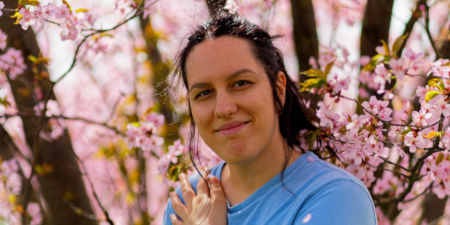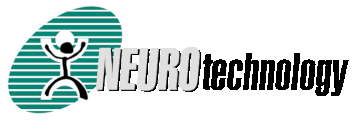From Academia to Industry: Applying Neuroscience Expertise to Simplify EEG Solutions - Martina Berto story

1. Could you tell us more about how you decided to become a researcher?
I have always been fascinated by the study of human cognition. Along the way, I found myself torn between clinical work and research. My master's in Neuroscience and Neuropsychological Rehabilitation gave me a solid grounding in both. In the end, I realized that the scientific side really captured my interest, so I decided to pursue a PhD in Computational Neuroscience.
Research can be tough at times, but there's something incredibly rewarding about making new discoveries and breakthroughs.
2. Why did you choose neuroscience as your primary research field? What do you find most captivating about the brain?
As I mentioned, I have always been fascinated by cognitive science. The brain operates in mysterious ways, and as scientists, there is still so much we have yet to understand. Recent technological innovations are helping us uncover more, but the journey ahead remains long.
I am truly excited about the possibilities that new technologies and the AI revolution will bring. I also firmly believe that understanding our cognitive states holds great power to improve quality of life. Making neuroscience more accessible and easier for everyday users is one of my core goals.
3. What brought you to Neurotechnology?
Working in academia was an enriching experience, but I eventually realized I wanted to pursue something more practical. While I enjoy research, I was eager to step outside the university environment and transition into industry, where I could focus on tangible goals and greater opportunities for growth.
Joining Neurotechnology was a perfect fit for me. The company develops BrainAccess, a comprehensive line of electroencephalography (EEG) hardware and software solutions. During my master's and PhD, I gained extensive experience working with EEG, so I sought a company with similar products where I could apply my skills, do work I enjoy, and continue learning, something Neurotechnology strongly encourages. Moreover, the company fosters innovation and values research while emphasizing practical objectives and concrete results, which perfectly aligns with my goals and expectations.
4. Could you describe your tasks at Neurotechnology in greater detail?
My tasks at Neurotechnology are diverse, which is something I truly enjoy. As a research engineer, my primary responsibility is developing analytic pipelines and algorithms. This includes creating libraries to preprocess and analyze EEG data, with the goal of automating and simplifying the process for our clients. Our mission is to make EEG technology more accessible, even to inexperienced users, and this is where my expertise plays a key role in designing tools that streamline the workflow.
Additionally, as an expert neuroscientist myself, I have a deep understanding of our target audience. I contribute by suggesting improvements, identifying critical issues, and supporting the marketing strategy. Currently, I am also writing content for our blog and social media channels, sharing insights about neuroscience, EEG, and updates on our products and new releases.
5. Are you more of a team player or do you prefer to tackle work challenges individually?
I usually carry out most of my tasks independently, though this varies depending on the nature of the work. We have a strong collaborative spirit within the team, making it easy to ask for support or offer help to one another when needed.
6. What were you most excited about before moving here?
This was a new adventure for me. My first job in industry and my first time living in Lithuania. I was definitely excited to experience something new and enjoy a change of scenery and environment. I was also eager to challenge myself, see what I'm capable of, and learn new things along the way.
7. What advice would you give to someone who wants to relocate to Lithuania?
Lithuania is a beautiful country, especially if you enjoy feeling connected to nature. The process of moving here was smooth and straightforward. I'd recommend visiting the city beforehand, like I did. You'll fall in love with Vilnius and its lively and peaceful atmosphere.
Martina Berto is one of more than 50 people at Neurotechnology involved in creation of advanced algorithms and technologies.
Please contact us, if you have experience or a keen interest in these fields:
- natural language processing
- biometric recognition algorithm development
- brain-computer interfaces
- neural networks
- computer vision
- artificial intelligence
Email us (career@neurotechnology.com) your CV and motivation letter.
